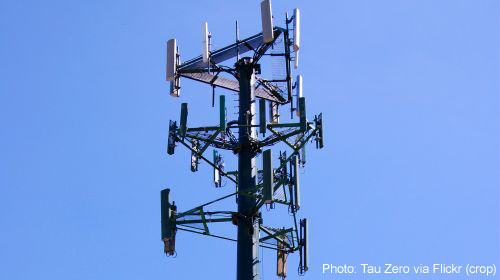New York Court Recognizes Privacy-Invasive Nature of Cell Tower Dumps But Stops Short of Requiring a Warrant


A magistrate judge in New York has become only the second federal judge to issue a public ruling addressing the lawfulness of so-called “tower dumps”—the intrusive practice by which the government acquires location information for hundreds or thousands of Americans at a time. The judge ruled after inviting the ACLU and the New York Civil Liberties Union to submit a brief in the case in light of the novelty of the issue. And although we disagree with the court’s decision not to require the government to get a warrant before resorting to invasive tower dumps, the court’s decision to demand that the government institute privacy protections for innocent bystanders is a step forward.
Whenever people communicate using their cell phones (via voice or text), their cell service provider logs and retains information about the location of their phone, including the cell tower and sector the phone was connected to. Law enforcement often seeks historical cell phone location records of individual suspects in investigations (we have discussed our concerns with this type of surveillance here and here). In some investigations, when police don’t yet have a suspect or don’t know the suspect’s cell phone number, they conduct an even broader search, seeking records that reveal every cell phone that connected with one or more cell towers over a specified period of time. This is called a cell tower dump. Depending on the time period covered, tower dumps can sweep up the locations and cell phone information of hundreds, thousands, or even of innocent people. The government performs thousands of tower dumps every year—yet very few courts have addressed the legality and constitutionality of the practice in publicly available opinions.
In early May, the government sought an order permitting it to obtain a tower dump covering a number of cell towers near a New York City address over a 4.5-hour period. Manhattan’s means that thousands of people would likely have made phone calls near the targeted towers during that time period. As a result, the government’s request for a tower dump amounts to a highly invasive dragnet search. Recognizing that such a broad search might be problematic, and without the benefit of case law addressing tower dumps, the court asked the ACLU and NYCLU to respond to the government’s application.
In our brief, we argued that the federal statute under which the government sought to obtain a tower dump, the Stored Communications Act, does not permit broad requests for hundreds or thousands of people’s data. We also argued that the Fourth Amendment protects against warrantless tower dumps because they constitute broad dragnet searches affecting large numbers of innocent people. Unfortunately, the court rejected these arguments, in part because it accepted the (we believe, faulty) argument that people give up their privacy in their cell phone location information merely by signing up for cell phone service with their service provider.
The court did recognize that bystanders deserve some privacy protection from tower dumps, though. It refused to issue an order authorizing the requested tower dump, and required “the Government to submit an amended application that (1) provides more specific justification for the time period for which the records will be gathered and (2) outlines a protocol to address how the Government will handle the private information of innocent third parties whose data is retrieved.”
These protections fall short of the Fourth Amendment’s requirement of a warrant based upon probable cause, but they are nonetheless important. At a bare minimum, courts should take steps like this to limit the use of tower dumps and to protect the privacy of the countless innocent people who happened to use their cell phones in the vicinity of the site of a crime.

